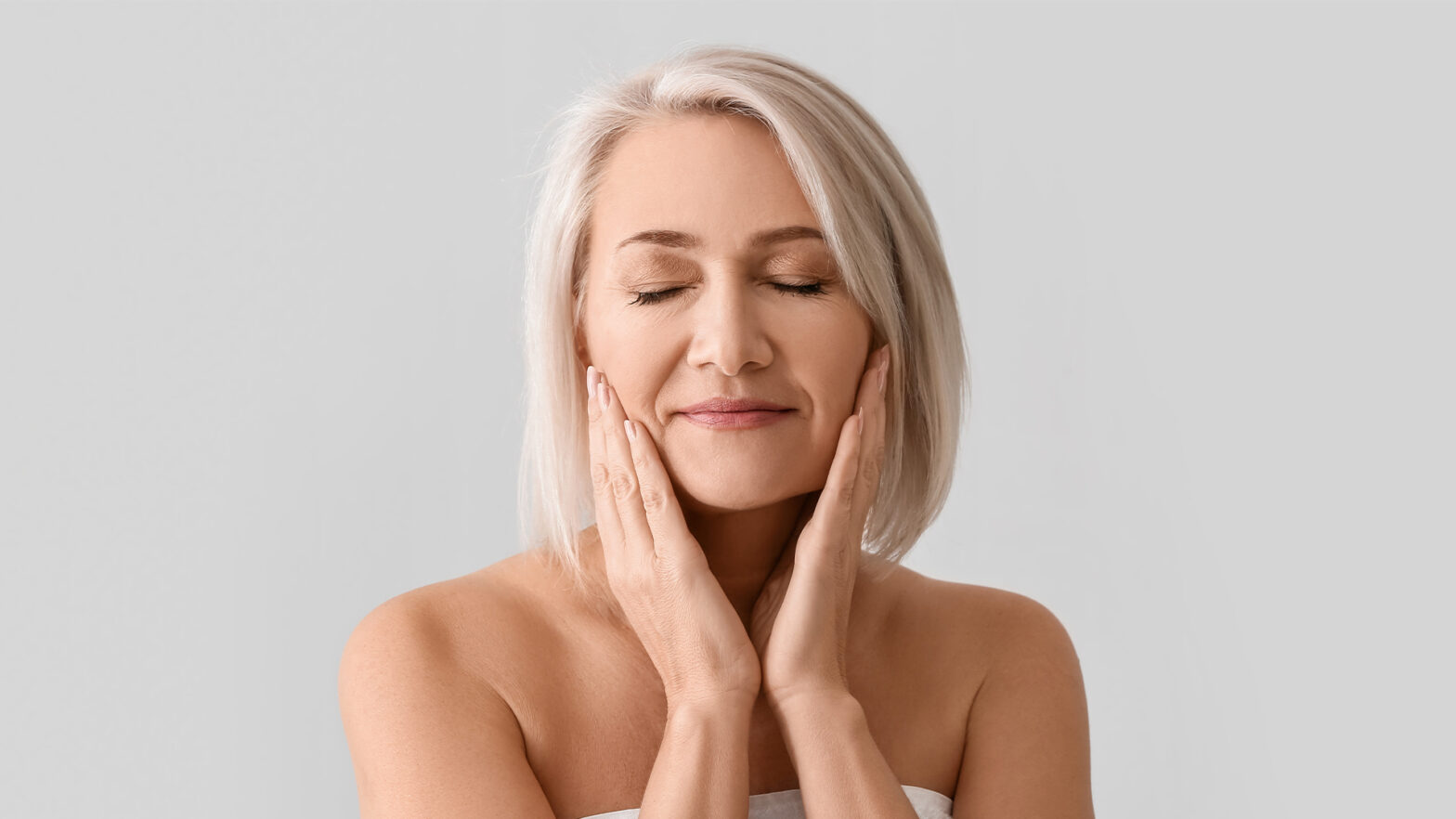
By Jessica Kerr, founder of Skin Botanist
Menopause is a significant phase in a woman’s life marked by numerous changes, including those affecting the skin. Hormonal fluctuations can lead to dryness, sensitivity, and other skin concerns. At Skin Botanist, we believe in empowering women with knowledge and natural skincare solutions to maintain a healthy, radiant complexion during menopause. Here are our top skincare tips to help you navigate this transformative time.
Understanding menopause and its impact on skin
Menopause typically occurs between the ages of 45 and 55 and brings a decrease in oestrogen levels. Oestrogen is vital for maintaining skin elasticity, moisture, and thickness. As these levels drop, you might notice changes such as:
- Dryness and dehydration: Reduced oil production can make your skin feel drier and more prone to flaking.
- Loss of elasticity: Decreased collagen production leads to sagging and the appearance of fine lines and wrinkles.
- Increased sensitivity: Skin may become more reactive to certain products and environmental factors.
- Pigmentation changes: Hormonal shifts can cause hyperpigmentation or age spots.
Essential skincare tips for menopausal skin
1. Stay hydrated
Hydration is crucial for maintaining skin health, especially during menopause. Drink plenty of water throughout the day to keep your skin hydrated from the inside out. Incorporate hydrating foods like cucumbers, watermelon, and oranges into your diet.
2. Use gentle cleansers
Opt for mild, hydrating cleansers that won’t strip your skin of its natural oils. Look for products with natural ingredients like aloe vera, chamomile, and cucumber extract, which cleanse without causing irritation.
3. Incorporate moisture-rich products
Switch to richer, more nourishing moisturisers that provide long-lasting hydration. Ingredients like shea butter and beeswax are excellent for locking in moisture and strengthening the skin barrier. Consider using a face oil with nourishing oils like jojoba, apricot kernel oil and sweet almond oil to provide an extra layer of hydration and protection.
4. Protect your skin from the sun
Sun protection is essential at any age, but it becomes even more crucial during menopause. Use sunscreen every day, regardless of the weather. Look for sunscreens with added antioxidants like vitamin C and E to provide extra protection against environmental damage.
5. Exfoliate regularly
Exfoliation helps remove dead skin cells, promoting a smoother, more radiant complexion. However, be gentle and avoid over-exfoliating, as menopausal skin can be more sensitive. Use a mild exfoliant with natural ingredients once or twice a week. You can even make your own!
Ingredients
150g sugar (we find castor sugar is a nice gentle option)
30g carrier oil (sweet almond oil, olive oil or jojoba oil)
20g honey
Method
Combine the ingredients and store in an airtight glass jar. Remember to keep wet fingers away from the jar to prevent contamination.
6. Boost collagen production
To combat the loss of elasticity, incorporate products that stimulate collagen production and, as mentioned in our recent blog post Key takeaways from Huberman’s skin health podcast, it is recommended to consume 15g to 30g of collagen peptides daily, ideally combined with about 500mg of vitamin C to maximise absorption and effectiveness.
7. Address hyperpigmentation
If you notice age spots or uneven skin tone, look for products with brightening ingredients like licorice extract, and vitamin C. These ingredients can help reduce the appearance of pigmentation and promote a more even complexion.
8. Nourish from within
A balanced diet rich in vitamins, minerals, and antioxidants is vital for skin health. Foods high in omega-3 fatty acids, such as salmon, chia seeds, and walnuts, can help maintain skin elasticity and hydration. Incorporate plenty of fruits and vegetables to ensure you’re getting a wide range of skin-loving nutrients.
9. Manage stress
Stress can exacerbate skin issues during menopause. Practice stress-reducing activities like yoga, meditation, and deep breathing exercises. Taking time for self-care can have a positive impact on both your mental wellbeing and your skin.
10. Prioritise sleep
Quality sleep is essential for skin regeneration and repair. Aim for 7-9 hours of sleep each night to give your skin the time it needs to rejuvenate. Create a relaxing bedtime routine and ensure your sleeping environment is conducive to restful sleep.
Navigating skincare during menopause can be challenging, but with the right knowledge and products, you can maintain a healthy, radiant complexion. At Skin Botanist, we’re committed to providing natural, effective skincare solutions tailored to the unique needs of menopausal skin. Embrace this new phase of life with confidence and let your inner beauty shine through.

















